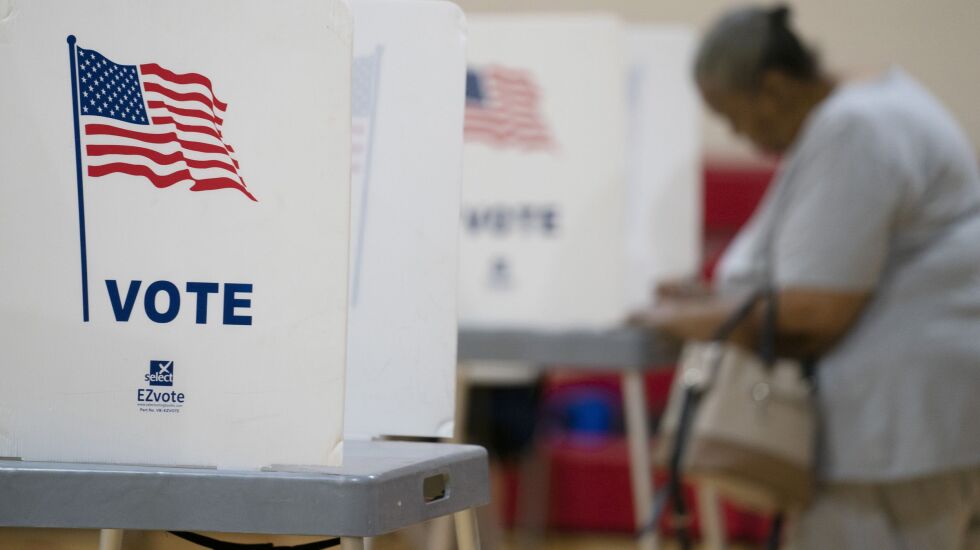
When Charles Diggs Jr. won election to Congress in Michigan’s 13th District in 1954, he launched nearly seven decades in which the city of Detroit had at least one Black member of Congress.
That’s likely to change this year. Because of redistricting, Detroit no longer has majority-Black congressional districts. And in the first primary election with newly drawn district lines, a Black candidate did not win the Democratic contest in the heavily Democratic 13th. That means the city is likely to lack Black representation in Congress for the first time in decades.
Redistricting is robbing Black candidates and voters of hard-fought-for opportunities they have had for years to win election. In Detroit, new districts merged Black areas of the city with white neighborhoods across 8 Mile Road. The city now stands to lose Black representation in Congress and have less representation in the state legislature.
Knowing what the impact could be, voters have spoken out forcefully against the new redistricting maps from pulpits to street corners to the state capitol, and even before the state courts.
Sadly, Michigan is not alone. The New York Times reported in August that this year, “judges in Alabama, Georgia, Louisiana and Ohio have found that Republican legislators illegally drew those states’ congressional maps along racial or partisan lines, or that a trial very likely would conclude that they did.” But elections are moving forward anyway.
Advocacy and activism
We’ve all heard about the restrictive voter suppression laws that far-right state legislatures are passing. We’ve heard about the crackdowns on voting hours and mail-in voting, and even on giving food and water to voters in long lines. But we don’t hear enough about redistricting as another weapon being used to intimidate voters and keep us from exercising our constitutional rights. It is erasing us from Congress and state legislatures.
We need to call it out and challenge it where we see it.
Calling out and challenging means organizing, litigating and legislating. It means supporting national and local organizations that unite communities against racist gerrymandering and seek justice in the courts. They might not win every case, but advocacy and activism are essential to righting this wrong.
We must also keep voting, running for office and educating. My organization, People For the American Way, houses an African American Religious Affairs network that has reaffirmed for more than a decade that “every election matters and every vote counts” — and that includes primaries. For Black ministers in our network, voting and civic participation are acts of faith and so much more. As Reverend Dr. Steve Bland Jr., pastor of Liberty Temple Baptist Church in Detroit, said, “It’s not about left or right. Splitting Detroit into two districts was an insult. But we have faith and must deal with our self-interest by voting in every election!”
I know that a lot of media coverage of this summer’s primaries has focused on one big question: Will Trump-style MAGA candidates win or lose? But there’s another question that needs to be asked: How harmful are the impacts of redistricting on our communities in this year’s elections and those to come?
The current reality dictates that we do not sit out any election. We need to resolutely register, educate, motivate and turn out voters. In every election. Every time.
Ben Jealous is president of People For the American Way and a professor at the University of Pennsylvania.
The Sun-Times welcomes letters to the editor and op-eds. See our guidelines.







